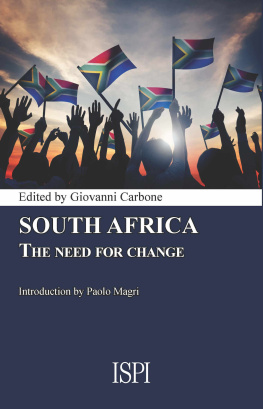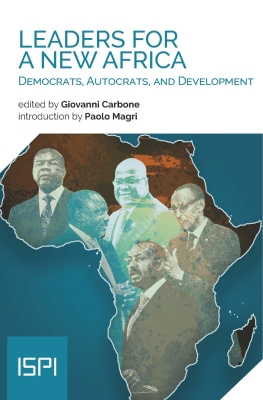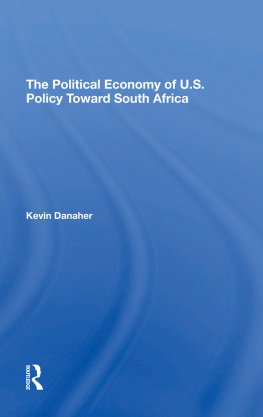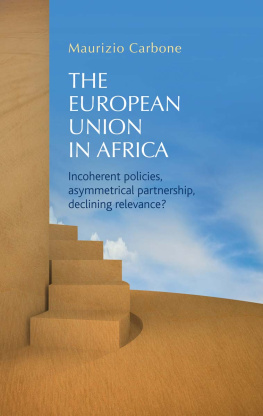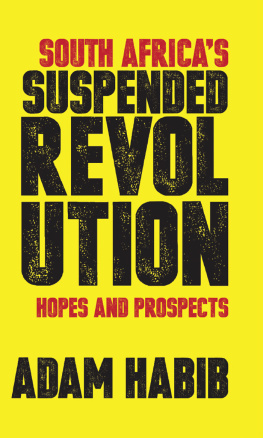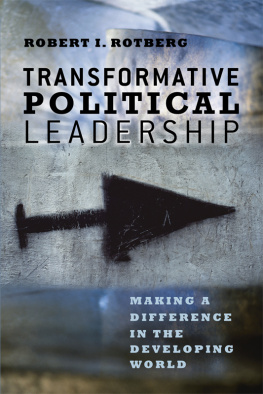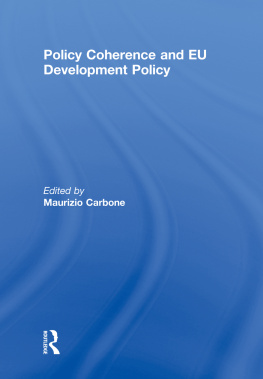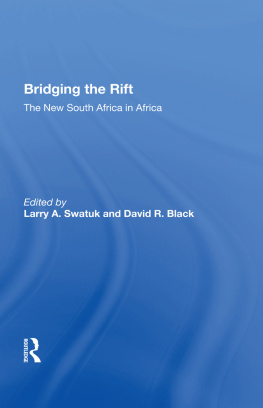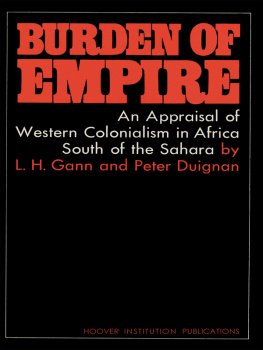South Africa
the need for change
Edited by Giovanni Carbone
2016 Ledizioni LediPublishing
Via Alamanni, 11 20141 Milano Italy
www.ledizioni.it
info@ledizioni.it
South Africa. The Need for Change
Edited by Giovanni Carbone
First edition: November 2016
Print ISBN 9788867055470
ePub ISBN 9788867055487
Pdf ISBN 9788867055548
DOI 10.14672/67055548
ISPI. Via Clerici, 5
20121, Milano
www.ispionline.it
Catalogue and reprints information: www.ledizioni.it
Contents
Paolo Magri ......... ............................................................ ....9
Giovanni Carbone.............................................................
Michael Marchant.............................................................
Nicoli Nattrass........................................................ ...........55
Rocco W. Ronza.................................................................
Brendan Vickers.................................................................
Chris Alden.....................................................................
.................................................... ...............
........ ..........................................................
Introduction
When Archbishop Desmond Tutu first coined the term rainbow nation to describe post-apartheid South Africa, after the countrys first fully democratic election in 1994, the term was intended to encapsulate the unity of multi-culturalism and the coming-together of many races and ethnicities in a country previously identified with a harsh separation between white and black.
Over the past twenty years South Africa was internationally acclaimed both for abandoning the apartheid regime and transitioning to democratic rule, as well as for joining the emerging BRIC economies (thereafter named the BRICS) by virtue of its leading role in sub-Saharan Africa.
Yet today the situation looks different. In fact, it looks much gloomier than many of us would have expected when Nelson Mandela first led South Africa into the democratic era.
Two decades later the country is increasingly torn by economic and social divisions, radical inequalities and an alarming unemployment rate, while there are numerous signs that racial fault lines have not yet been healed. The countrys dull growth performance in recent years has coincided with the rise of corruption, financial crime and political turbulence, and with the intensifying dissatisfaction of many ordinary citizens who expected much more rapid social and economic improvements. The number of those who feel excluded from their own countrys convoluted post-apartheid development path is increasing impressively. Protests over the lack of water and electricity have spiked in recent years and xenophobic anti-immigrant riots are spreading. On many occasions, political tensions have turned into civil unrest and violence, leaving dozens dead on the ground, while poverty and resentment are fueling strikes and mobs: supermarkets have been pillaged, schools set on fire, roads blocked with burning tires.
The mighty African National Congress, the party that was once Mandelas and the heir to liberation movement, appears to be suffering from a slow but evident decline. According to many commentators, the result of the August 2016 ballot might be the first electoral symptom of a more or less distant twilight. If still unthinkably positive by European standards, for the dazed ANC the outcome of this poll was unprecedented on such a broad scale. The share of the vote for the party that has ruled over the country ever since its transition to democracy, has fallen from about 60-70% in previous elections to less than 54%, while opposition parties above all the young, liberal pro-business Democratic Alliance are on the rise and have conquered several major urban centres. Along with scandals involving public officials, internal fights and allegations of abuse of power, for many voters the ANC governments shoddy provision of basic services was a decisive issue in this election. Correspondingly, an IPSOS survey conducted in June/July 2016 revealed that 57% of South Africans believe the ANC has lost its moral compass. By the same token, South Africas incumbent President Jacob Zuma, the leader of the ANC, is politically weakened by corruption charges and misuse of public money and there are rumors that the party will try to push him out before the end of his term in 2019.
In the meantime, the international image of South Africa plummeted alongside the national currency, the rand, while the countrys economic leadership in the African continent is challenged by the rise of other strong regional and international contenders.
In a nutshell, South Africans are angry, and they have cause to be.
Still, maybe all is not lost yet. What clearly appears to be a crisis is not supposed to last forever. As a matter of fact, perhaps more than any other country on the continent, South Africa has powerful antibodies to halt, and eventually invert, this apparently relentless decline.
Internally, as the authors in this report do not neglect to recall, these antibodies are made of a strong independent judiciary, a free media, robust institutions with protections entrenched in the constitution, a relatively dynamic political landscape and, above all, a vibrant and alert civil society that is willing to shape the countrys future. Although they may not yet represent a revolution, the results of the 2016 local-government elections are a convincing demonstration that more and more South Africans are willing to stop their countrys drift, or at least to change its direction. On a continental and international level there is hope too: as the largest, wealthiest and most industrialized economy in Africa, with a dynamic private sector that has carved an impressive investment footprint in most of sub-Saharan Africa, South Africa is still well positioned to lead the continent.
Will these counters to decay prove sufficient to lead South Africa out of the swamp? How deep is the crisis the country is experiencing? And what are the root causes that lie behind it? Will the country be able to sustain its leading role in Africa? Finding answers to these pressing questions, and many more, is the attempt made by the ISPI Africa Report 2016 that collects the findings and analyses of six international scholars and experts on South Africa.
To start with, Giovanni Carbones introductory chapter guides the reader through South Africas major political developments in the post-apartheid era and provides an important overview of the main motives behind the current deterioration of the countrys political and economic situation. Building on an in-depth dissection of the milestones, lights and shadows that have shaped the ANCs more than two decades of unchallenged dominance, the author stresses how this long reign resulted in the party losing touch with the needs and urgency for better distribution of the dividends of democracy and, eventually, in a broader falling apart of elite consensus in the country. He also argues that the ascent of a questionable leader like Jacob Zuma to the forefront of South Africas and the ANCs political scene has seriously contributed to the rapid jading of the long-term legitimation capital the ANC had gained by guiding the countrys transition to democracy under Mandela, hence opening the way to the increasing success of contenders that are now seriously challenging the ANCs hegemony.


